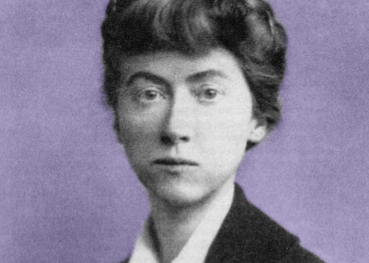
Here celebrated poet Marianne Moore writes to her cohort and champion, William Carlos Williams, about his recently published autobiography. Unsurprisingly, Moore’s tone in this letter is both chatty and lyrical; she lends Williams her praise in insightful bursts.
To William Carlos Williams
September 23rd, 1951
“But all I meant was that sour grapes are just the same shape as sweet ones.”
Unique.
Dear William:
The Autobiography; some of your very best accuracies and clues to presentment. To say nothing of “the local assertion” and the fervor! “What became of me has never seemed to me important, but the fates of ideas living against the grain in a nondescript world has always held me breathless.” This is the summary, but where did Selden Rodman get it? From In the American Grain, I suppose, or is it here and I don’t see what I read?
I should like to see “The Old Apple Tree.” I suppose, you can’t write it again? And “The Dog and the Fever,” something to look forward to.
The portraits. Marsden Hartley’s elephant eyes. Ezra Pound and “time.” Florence, I am grateful to see, comes out as the hero she is. What a father, and your own father, his silent resignation to events, never making difficulties for anyone. I remember Charles Demuth clearly, in the rather high enormous hospital room at Morristown, and his touching little objects, jade and something china, and I think a few flowers. I was awed by the fact that he made nothing of his disability and gave the impression of being normal. Then Joe who rode along with you because his wife’s cousins were no good, and then walked back.
There are no words for these things; for some others, either. You know my attitude to what I consider uninvigorating.
As for me, you see me in too good a light. I never held up anything and nobody loved me!
Love to Florence and yourself. Marianne
I am a little puzzled by the statement that Kenneth Burke “took over after I left [The Dial].” I thought he left and I stayed; and we all left, the others of us in July 1929. And that matter of “The Waste Land.” It showed—me at least—that we don’t have to be Austin Dobson; but more important than that, that urgency is the point—urgency in the author, whoever may or may not like the result.
I hesitate to write you lest I rouse you to a letter and you ought to spare yourself. I know you ought. Don’t take risks. You would have heard from me at once, on the other hand for I do not become less impetuous with time, but I couldn’t write—because of an eye, an inflamed retina. I realise how it is that Bryher is Sir John Ellerman here—whereas “Sir John’s money” would not have published Gertrude Stein or anyone or given big parties, if Sir John’s money had not been Bryher’s money—the sad fact being that when one is not wise, there is no end to the penalty!—of a piece to me, William, with “the poor defeated body and its gulf.”
From Marianne Moore: Selected Letters. Edited with an introduction by Bonnie Costello. New York: Penguin, 1997.
FURTHER READING
In November 1960, “the day before the presidential election,” Donald Hall of The Paris Review interviewed Marianne Moore for The Art of Poetry No. 4.
Former poet laureate Robert Pinsky analyzes some of Moore’s best known “Poetry” on Slate.


